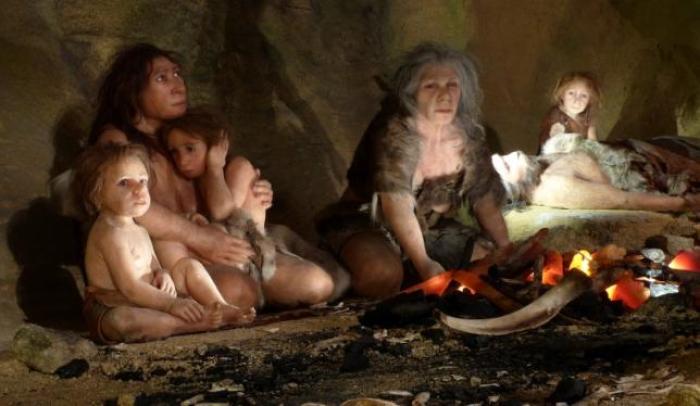Ken Ham's Answers in Genesis Refutes Theory That Neanderthals Were 'Ancient Soulless Humans;' Argues They Were Made in God's Image Too

Answers in Genesis, founded by creationist Ken Ham, has argued in an article against suggestions that Neanderthals were ancient pre-Adamic and therefore soulless humans, asserting that they, too, were made in God's image.
The article, written by AiG's Elizabeth Mitchell, challenges what she says are arguments by Old Earth creationists such as Hugh Ross of Reasons to Believe, that position Neanderthals as "pre-Adamic intelligent but soulless human-like bipedal beings who painted on cave walls and buried their dead."
"Noting that this amounts to a belief that soulless humans, though Ross would not call them human, lived before Adam and Eve, we have often called attention to the inconsistencies of Ross' position with the Word of God," Mitchell wrote.
Ross rejects theories that Neanderthals and humans share an evolutionary connection, and his organization has said there is no evidence the two groups interbred.
"RTB's biblical creation model identifies 'hominids,' Neanderthals, Homo erectus and others, as animals created by God. These extra-ordinary creatures walked erect and possessed enough intelligence to assemble crude tools and even adopt some level of 'culture.' The RTB model maintains that the hominids were not spiritual beings made in God's image. RTB's model reserves this status exclusively for Adam and Eve and their descendents [sic] (modern humans)," the RTB website states.
AiG wrote that even though Ross correctly believes Adam and Eve are real people; also believing that the Earth is billions of years old poses a problem when trying to reconcile the ancient dates assigned to the Neanderthals.
"He therefore maintains that God created Adam and Eve after the human-like animals we call Neanderthals — whatever they were — and that Neanderthals had no biological relationship to true humans. The same would be true for any other archaic humans deemed to be of great age," Mitchell wrote.
The nature and lineage of Neanderthals continues to be debated among scientific circles, with scientists who believe the Earth is billions of years old offering that they went extinct around 40,000 years ago, or 5,000 years after the arrival of the first modern humans.
Various theories have also been presented on why they went extinct, with some researchers, like Anna Goldfield of Boston University, suggesting that the Neanderthals' failure to master cooking and fire might have been a leading cause.
"The issue of Neanderthal extinction is very complex, and very little is agreed upon," Goldfield said in an article on Monday on LiveScience.
AiG agreed that the debate surrounding this group will continue: "Admittedly, archaeologists will never dig up a video image of Neanderthals sitting around a cooking fire discussing the day's hunt, planning crisis contingencies for the cooling climate, pondering what happens to people after they die, and speculating on the nature of God and man."
The creationist group insisted, however, that the Bible rules out the possibility of soulless humans living before Adam and Eve, and argued that genetic evidence shows that Neanderthals were not a separate subspecies from humans, but must have been closely related.
"How much knowledge of the true God these groups retained, we do not know. However, as the not-too-distant descendants of Noah's family, it is possible those unrecorded discussions around some campfires concerned the things of God and that as they gazed up at the stars they recognized the hand of their Creator," Mitchell wrote.
"But it is also likely that they were pagan idolaters, since without scriptural truth, people tend to quickly drift into superstition and error. We simply cannot know for sure," she added. "But neither culture nor time nor geography nor lack of literacy nor any anatomical distinction alters the fact that the proper place for Neanderthals and all other extinct human beings was among the descendants from Adam and Eve, all made in the image of their Creator just as we are."




























